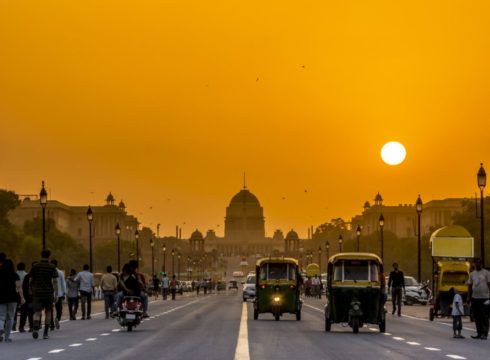SUMMARY
Delhi govt is planning to give relaxation to EVs in new parking policy
The authority plans to subsidy electric two-wheelers
The national capital to have charging points in every 3 Kms
Inc42 Daily Brief
Stay Ahead With Daily News & Analysis on India’s Tech & Startup Economy
Delhi government is ready to go the electric vehicle (EV) way to tackle air pollution and traffic congestion in the national capital. The Aam Aadmi Party (AAP)-led Delhi government has now come up with several incentives to make sure that emobility is soon adopted by the public.
The government has passed an order stating that all-electric vehicles should have green number plates. The authority is also currently working on new parking policy and considering to impose lower or no congestion charges or parking fees on EVs.
The government believes that by exemption or reduction of the fee on EV will encourage people to adopt them faster. In addition, the Delhi government is also considering to provide a subsidy of up to INR 22,000 on electric two-wheelers to ensure that they cost less or equivalent to petrol-run scooters.
Delhi’s transportation department is giving special attention to making the e-rickshaws in Delhi to switch to green number plates. The government believes that there are over 1 Lakh e-rickshaws in Delhi, but only 50K has been registered.
According to the World Economic Forum (WEF) report on EV Policies of India, India has the potential to become the largest EV market in the world. In the report, WEF in collaboration with Ola Electric Institute, analysed the EV policies and programmes of 10 states, including Andra Pradesh, Bihar, Karnataka, Kerala and Maharashtra and union territories (UT) like New Delhi.
The report highlighted that Delhi’s EV policies focus on increasing awareness regarding the benefits of adopting EVs and building customer trust. Moreover, the national capital is also discouraging the use of fuel-run vehicles/ internal combustion engines (ICEs) by introducing pollution cess, air-quality parking surcharge and an environment compensation charge.
The Delhi government is also planning to introduce some vocational courses in association with original equipment manufacturers (OEM), energy operators (EO) and battery-swapping operators (BSO).
Other provision in Delhi government’s EV policy:
- Delhi government is planning to set up public charging infrastructure at least every three kilometres
- Delhi will take up competitive bidding to select the energy operators (EOs) to install and operate charging stations for 10 years in every travel district
- The BSOs are allowed to set up and operate battery-swapping kiosks at a bare minimum rental
- Introduction of common mobility card that will allow EOs and BSOs to accept any mode of payments — cash, card, mobile wallets or unified payment interface
- Delhi has nominated the transport department to be the nodal department for implementing the EV policy
- The government also plans to set up an EV cell within the transport department for the day-to-day implementation of the policy
Moreover, the Delhi government is also planning to make the EV ecosystem in the national capital more friendly and convenient for the users by providing real-time information on charging infrastructure. For this, the government will be using an open and publicly-owned database, which will show location, numbers, type of swapping kiosks or chargers, queue lengths or availability, and pricing among others.
Note: We at Inc42 take our ethics very seriously. More information about it can be found here.


